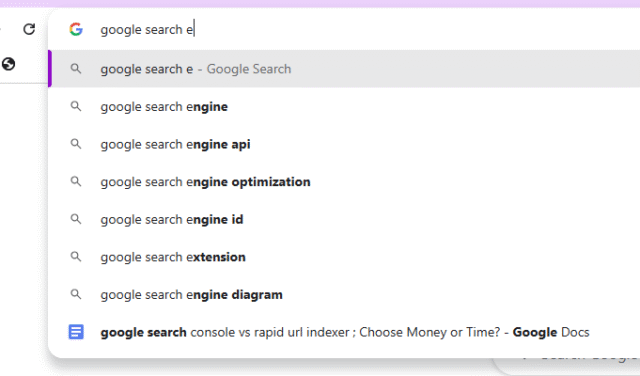Keyword research is work that many people can perform, but effective keyword research techniques for improved organic seo traffic is an art that only experts can do.
A beginning or even an intermediate-level SEO person will do keyword research for you if you want them to. Your major goal is to find keywords that are easy to rank for and have a lot of searches.
Then you start to wonder how to locate those kinds of keywords.
That’s why we’re here.
We will discuss here 20 effective keyword research techniques for improved organic seo traffic
But before we get to the primary point of our discussion, let’s discuss keywords for a moment.
Keyword – Sound interesting?
What is a keyword

No matter what users type into Google or other search engines. It is a keyword for search engines.
The keyword is every where, therefore all you have to do is look for it and incorporate it in your work.
A keyword could represent one word, a set of words, or even an entire sentence.
For example:- you search on Google, what is seo and why is it important?. In that case, “SEO” can be your keyword, “what is seo” or “what is seo and why is it important?” It can be your keyword.
That’s why I said before that everyone can find a keyword, but finding one that works is an art.
Confused?
Don’t worry.
Here are some types of keywords that you can read later after finishing this article.
Now I hope you understand about keywords.
Let’s discuss our main topic
21 effective keyword research techniques for improved organic seo traffic

If you want your website to show up more often in search engines like Google, you need to use the Right keywords in the right places.
To find the right keyword, you need to do keyword research effectively. We will discuss 21 effective keyword research techniques for improved organic seo traffic.
So lets get started.
-
Google Autocomplete (Search Suggestions)

Google Autocomplete (Search Suggestions)
bedeol
When you start typing in the Google search box, it sometimes completes your sentence or gives you suggestions. That may be your next keyword.
I also provided the screenshot so you can easily comprehend it.
Note: After you pick a term from here, always go to the keyword tools to see how many people are searching for it and how competitive it is.
Why It Works:
- Shows how people look for things
- Shows changes in the long tail
- Updates depending on what’s popular and what’s going on right now
How to Use It:
- Type your keyword in the Google search box.
- Note the suggestions (e.g., type “best seo” → suggestions like “best seo services in near me”).
2. “People Also Ask” & Related Searches
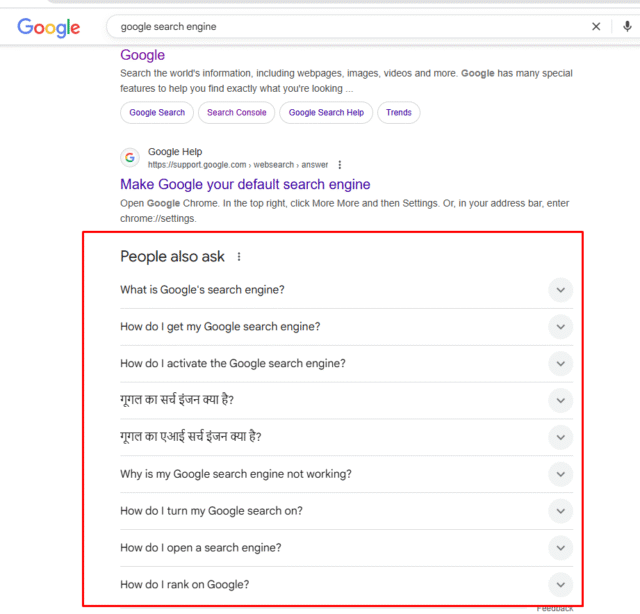
You may have noticed that sometimes the solution to your question shows up on the search engine results page. There are also more options on the same tab, such “People also ask” and “People also search for.”
Most of the time, “people also ask” shows up at the top of the search engine results page, while “people also search for” shows up at the bottom. You can look at the screenshot below.
Why It Works:
- Gives you ready-to-use question text for blog posts or FAQs.
- Helps you find featured bits.
- Shows what the visitor wants to know via semantic search.
How to Use It:
- Search your main keyword and look at the “PAA (People also Ask)” section.
- Click on the questions to see more that are relevant.
- Use tools like:
- AlsoAsked.com
- Answer Socrates
3. Google Keyword Planner
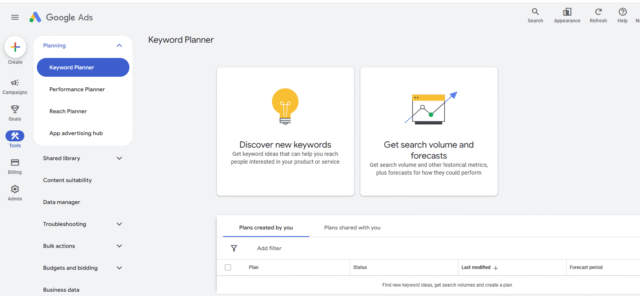
Google Keyword Planner is a tool that Google created to help you find keywords.it gives you fundamental details about the keywords. In the present era, what kinds of tools do we utilise to research keywords that are based on the Google Keyword Planner?.
Why It Works:
- Uses data from Google itself.
- Good for figuring out business purpose (using CPC).
- Helps you find related words and synonyms.
How to Use It:
- Create a free Google Ads account.
- Navigate to Tools → Keyword Planner → Discover New Keywords.
- Enter a seed keyword.
- Filter by location, language, and search network.
- Export relevant keywords and group them by topic.
Limitations:
- Volume ranges are broad unless you’re running paid campaigns.
- Doesn’t show organic keyword competition directly.
4. Competitor Keyword Analysis
You need to use a tool for Competitor Keyword Analysis. Tools available today, such as
- Semrush
- Ahrefs
- SpyFu
- Moz
- BuzzSumo
- Ubersuggest
- Similarweb
- Backlink Analytics
You may use these tools to find out what keywords your competitors are using and then make a plan to defeat them based on that information.
Why It Works:
- Lets you use terms that have worked in the past.
- Shows you where your site’s content is missing.
- Finds the best sites and keywords.
How to Use It:
- Pick a competition, whether they be direct or indirect.
- Put their domain into tools like:
- Ahrefs (Site Explorer)
- SEMrush (Domain Overview)
- Ubersuggest (Traffic Analyzer)
5. Reddit, Quora, and Forums
To what extent are you familiar with the term “goldmine”? In the event that this is the case, I would like to inform you that websites such as Reddit, Quora, and Forums are excellent locations to look for keywords.
Nevertheless, you want to be aware of how to make use of it and get the most out of it.
Why It Works:
- It helps you write the way your audience talks.
- Increases topical relevance.
How to Use It:
- On Google, type site:reddit.com [your topic].
- Look for threads that keep coming up or get a lot of upvotes or comments.
- Mine question phrase (for example, “what’s the difference between…”).
- Use Keyworddit to get keywords from posts in subreddits.
- Use these questions as blog post titles, FAQs, or H2s in your content.
6. AnswerThePublic

If you are thinking of writing an article starting with words such as
Who
- what
- when
- why, etc.
Then askthepublic is for you.
Plans & Pricing;
| Monthly Plan | ||
| Individual | Pro | Max |
| US$5 | US$49 | US$99 |
| Lifetime Plan | ||
| US$50 | US$490 | US$990 |
Why It Works:
- Finds questions and search terms that users might not think of.
- Great for targeting voice search and featured snippets.
- Helps you make content that covers a topic from many different angles.
How to Use It:
- Go to answerthepublic.com.
- Type in a general keyword, like “email marketing.”
- Look over the question groups: “Why is email marketing important?”
- “How does email marketing work?”
- Put the results into a spreadsheet.
- As: Titles for blogs or H2 subheadings.
- Questions and Answers sections.
- FAQ sections.
7. Wikipedia Mining
Wikiepedia is great source to get idea for keyword research.
Why It Works:
- Wikipedia is structured by experts and editors with internal linking and hierarchy—great for SEO planning.
- Provides semantic keywords and related concepts Google associates with a topic.
- Supports building topical authority.
How to Use It:
- Search for a topic page like “Machine Learning.”
- Explore internal links for related ideas.
8. Google Trends
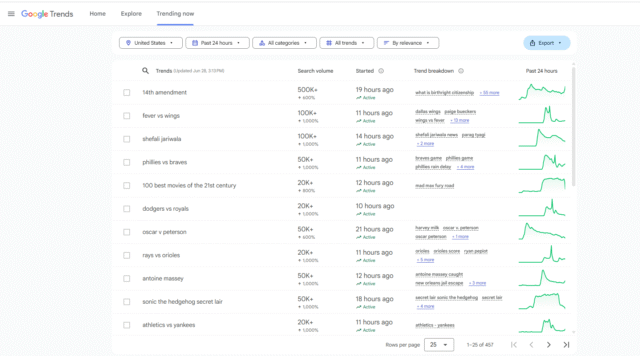
If you want to write about “talk of the town,” you should check Google Trends once. It helps you find your niche keyword by letting you search for today, yesterday, and a lot of other things.
Why It Works:
- Finds patterns that happen at certain times of the year, like “gym membership” spikes in January.
- Finds new topics (great for planning content).
- Helps you choose where to start..
How to Use It:
- Visit trends.google.com.
- Type in a word like “AI tools.”
- “AI apps” and “ChatGPT” are two words that mean the same thing..
- Set filters for Country, Time Range, and Category.
- Scroll down to:
- Related Topics (bigger ideas)
- Increasing Questions (trending changes)
9. YouTube Suggest
Just like Google’s autocomplete feature, YouTube’s search bar will make suggestions for terms as you write in the search bar.
This is great for both written and video content because YouTube is the second most popular search engine in today’s world.
Why It Works:
- Shows searches that are based on intent, how-to, and products.
- Good for reusing content (for example, turning a blog into a video or the other way around).
- It helps you figure out how much people want to see video content, which SEO tools often miss.
How to Use It:
- Type a word or phrase into YouTube, like “how to build a website.”
- Write down the differences:
- “How to use WordPress to make a website”
- “How to make a website for free”
- Use tools like:
- TubeBuddy
- VidIQ
- Keywords Everywhere (for volume overlay)
10. YouTube and Amazon Suggest
Did you know that YouTube is the second most popular search engine? . And like Google, YouTube will finish your sentence and give you suggestions.
Why It Works:
- Shows what people want to do with a given product or video.
- Helps find words used in online shopping or visual searches.
- Helps with SEO for products and writing content.
How to Use It:
- In the search field for Amazon or YouTube, type in a keyword.
- Pay attention to what autocomplete suggests.
- Use for SEO on blogs, product pages, or videos.
11. Search Console Queries
Search console always shows you information about your website. You may use that information to figure out what kinds of questions people ask on your website and plan to create that content for them.
Why It Works:
- Gives you real user questions that bring in traffic.
- Shows you which keywords you may use to boost your CTR or ranking.
- Lets you take advantage of opportunities that aren’t being used enough.
How to Use It:
- Click on “Performance” and then “Queries” in Google Search Console..
- Sort by how many times they were seen.
- Be certain that the titles, snippets, and content are optimised for terms that have a high number of impressions but a low click-through rate.
12. LSI (Latent Semantic Indexing) Keywords
A key phrase that is closely connected to the primary keyword or subject matter of the article.
Why It Works:
- Helps search engines better interpret material
- Helps you get higher rankings for relevant topics
How to Use It:
- Use LSIGraph or look at the best content
- Try to find terms that are comparable to one another or that mean the same thing.
- You should incorporate them into your content in a way that is logical.
13. Keyword Gap Analysis
It illustrates how your keywords and your competitors’ keywords are different in terms of where they rank on Google. This study helps you make your keywords and content better..
Why It Works:
- Shows you missing chances that your competitors are taking advantage of
- Makes your content strategy stronger
How to Use It:
- Use Ahrefs or SEMrush
- Look out how your domain stacks up against those of your competitors.
- Find their best-performing keywords and focus on them.
Note: I used SEMrush.
14. Keyword Clustering
KC is process that implies to figure outa similar type of keyword and merge or combine them in one article.
For example:-
- Best keyword research tool
- Best keyword research software.
- keyword research tool comparison
- keyword research software comparison
And make it as a “keyword research tools”
Why It Works:
- Helps you organise your content for semantic SEO
- Increases internal linkage and topical authority
How to Use It:
- Put terms that are similar together into groups.
- Make pillar pages and add content to them.
- Use links within your site to connect clusters.
15. Search Intent Mapping
The user or visitor who goes to a search engine has a reason for doing so. For instance, someone might go to a search engine to find out more about something.
It can be:-
Informational intent:- Just want to know more about the query.
Commercial intent:- Buy something.
Transactional intent:- Want to do some action such as purchase or add to cart
Navigational inten:-Looking for a specific website
Why It Works:
- Makes ensuring that the material is in line with what people want to do
- Increases the chances of conversion and rating success
How to Use It:
- Sort terms by their purpose: informative, navigational, transactional, or commercial.
- Make sure the content kinds match up (blog, product, guide, review)
- Make the format and call to action better
16. Chrome Extension
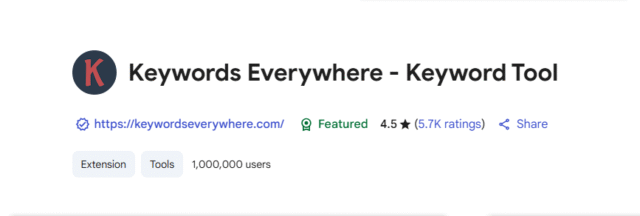
You can find keywords with a Chrome extension. You can acquire a lot of keyword ideas merely by looking via a search engine, which helps speed up your keyword research.
Some Chrome add-ons for keyword research are:-
- Ubbersugest
- Keywords everywhere
- Semrush
- Kw finder
Why It Works:
- While you browse, it gives you keyword data right away.
- Helps with research on the go
How to Use It:
- Add the addon to Chrome
- Search on Google or YouTube
- Use analytics like volume, CPC, and competition right from your browser
17. Customer feedback and review:-
‘It’s one of the most well-known or useful ways to do keyword research. You only need to write about something that your target audience needs.
Why It Works:
- Uses language that customers understand to be more relevant
- Finds real problems and wants
How to Use It:
- Look over reviews, chat logs, and support tickets.
- Make common phrases or pain areas stand out
- Use keywords that are long-tail or emotional.
18. Pinterest Search Suggestions
Pinterest’s search suggestions might help you find popular and trending topics on the site. if if something is popular or hot on Pinterest. .
It doesn’t mean that it’s not popular on search engines. This strategy might work for you too.
Why It Works:
- Keywords for visual discovery engines often show interest at an early stage
- Helpful for specific areas including fashion, food, travel, and DIY
How to Use It:
- Type a word into Pinterest’s search bar
- Look at the tiles and the recommendations that come up.
- Use these to get ideas for blog posts and content
19. Chatgpt or AI tools
AI tools are now a very significant aspect of our lives, and keyword research is no exception.
Why It Works:
- Quickly makes a lot of different variants of keywords and long-tail ideas
- Saves time when coming up with ideas
How to Use It:
- Prompt in ChatGPT to give you a list of keywords that are connected to a certain industry.
- Refine based on the type of material or the audience
- Use answers as seed keywords
20. Podcast Transcripts & Titles
You can find fresh keywords by looking at the title and description of the podcast.
Why It Works:
- Podcast topics often encompass current, niche-specific themes
- Transcripts have both natural language and long-tail keywords.
How to Use It:
- You should look for podcasts that are specialised to the business or speciality that you work in.
- You should search for keywords that appear repeatedly in the titles and transcripts of the documents.
- Use them in your blog or video material.
21. Google Scholar & Research Papers
It can help you to find keywords in your industry or niche.
Why It Works:
- Provides professionals with academic and technical terms
- Useful for business-to-business, scientific, and educational niches
How to Use It:
- Use Google Scholar to find articles about your field.
- Find words and phrases that come up often
- Use them to reach a certain group of people.
Summary

Keyword research is not something that can be done just once; rather, it is something that needs to be done on a consistent basis.
Utilisation of the digital world by individuals is subject to rapid change.
Through the use of a combination of these thirty strategies, you will be able to remain ahead of trends, better serve the requirements of your customers, and maintain an increase in your organic traffic.
✅ Pro Tip:
- Pay attention to search intent
- Get to know your audience well
- Give people material that is useful and one-of-a-kind
